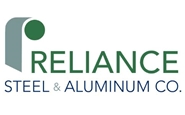Market Segment

July 23, 2020
Reliance Improves Earnings, Expects Demand to Increase
Written by Sandy Williams
Reliance Steel & Aluminum, the industry’s largest service center organization, is expecting a slight increase in demand during the third quarter of 2020 after sales dropped 21.5 percent from the first to the second quarter to $2.02 billion. Shipments for the second quarter declined 17.5 percent to 1.2 million tons with an average selling price per ton sold of $1,681. The company posted net income of $80.2 million, a 30 percent increase from $61.7 million in the first quarter, through reduction of SG&A expenses.
Demand declined in nearly all end markets served by Reliance due to COVID-19-related customer shutdowns and project delays. The company’s key market, nonresidential construction, softened during the quarter, but activity increased in May as coronavirus restrictions were lifted in much of the country. CEO Jim Hoffman said the sweet spot for Reliance in the construction market is smaller projects of 3-4 stories or below. Distribution center projects are strong now along with assisted living, schools and data centers. Healthy backlogs and positive customer sentiment suggest continued improvement for the second half of 2020.
Reduced demand during the quarter required a reduction in workforce of 2,100 employees in late March and early April. To date, Reliance has recalled 900 of those workers.
Reliance’s toll processing services fell sharply as the automotive market shut down in mid-March, necessitating a 50 percent cut in staffing at Reliance operations in the U.S. and Mexico. OEMs reopened in early June and Reliance was able to recall most of its furloughed workforce that services the auto market. Tolling volumes rebounded to 66 percent of January/February levels by the end of June and are expected to continue to increase in the third quarter in support of automotive production rates.
Aerospace demand remained solid during the second quarter in the defense market, but commercial demand declined considerably due to air travel restrictions and reduced commercial build rates. The company closed two of its related international locations and will continue to assess the profitability of its remaining commercial aerospace businesses. The commercial aerospace market is expected to remain challenged for the rest of the year and into 2021.
Agricultural and construction equipment declined sharply in the second quarter, but is expected to recover in the second half of the year.
The energy market remained weak in the second quarter “marking the lowest level of activity the company has seen in the past 25 years,” said the company. Reliance cut staffing and closed three of its energy-focused businesses in 2020. Further declines in the sector are anticipated in the third quarter.
The semiconductor market was a bright spot for Reliance, improving from first to second quarter and expected to remain strong in the second half.

Reliance executives noted an increase in acquisition opportunities compared to Q1. Hoffman said the company will continue to be selective and disciplined in its M&A activity.
Inventory levels are in good shape and lead times with domestic suppliers are very manageable, said Hoffman. “In my estimation to get America up and going again, they will need Reliance, and we need to be there for them,” he added.
Looking forward, Reliance expects that tons sold will be flat to up 2 percent in the third quarter. Overall metals pricing was better than anticipated in the second quarter and is expected to remain generally consistent with current levels.
“Although our outlook for nearly all of our end markets remains challenging and uncertain, we believe our diversification of end markets, products and geographies as well as our decentralized operating structure will continue to serve us well through the recovery that will follow these extraordinary times,” said Hoffman.







